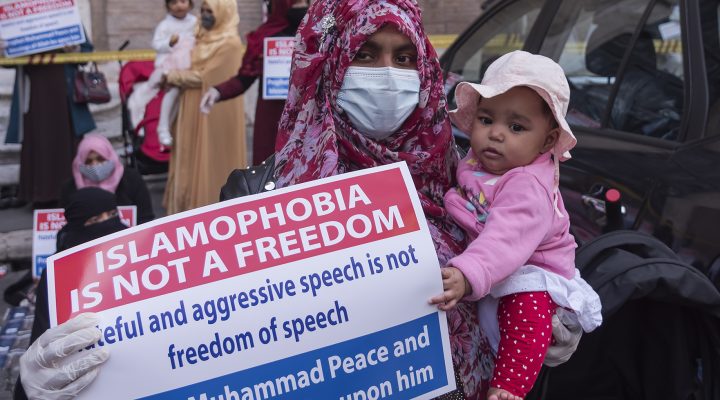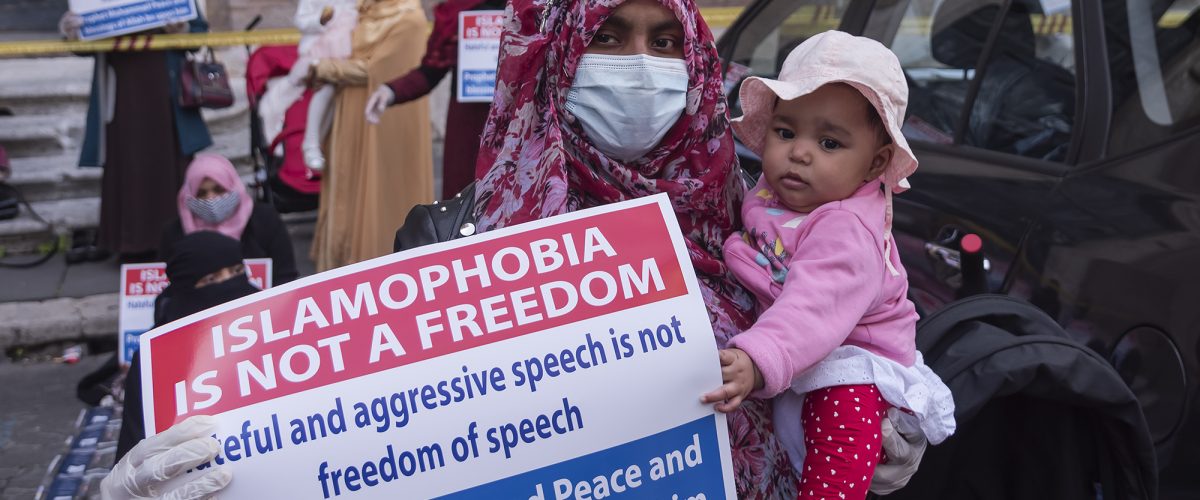Religious minorities are increasingly leaving European Union nations where they face laws that suppress religious liberty, according to the U.S. Commission on International Religious Freedom.
“These unduly restrictive policies have the secondary effect of encouraging discrimination at the societal level,” USCIRF said in a July report. “Members of religious minority groups have reported feeling targeted and unwelcome in certain EU countries and, in some cases, unable to lead a life compatible with both their religion and the laws of the country in which they reside. As a result, individuals from religious minority groups, particularly Jews and Muslims, reportedly are increasingly choosing to emigrate.”
The analysis acknowledged the irony that some of the EU nations with religiously restrictive policies, including Denmark, France and Germany, are simultaneously involved in efforts to promote and defend religious freedom abroad and claim to do so domestically.
“While European Union countries generally have in place constitutional and legal protections for freedom of religion or belief, some have also enacted laws and pursued policies that systematically violate religious freedom and have a serious and disproportionate impact on the ability of religious minorities to live in accordance with their beliefs,” the report states.
Faith-related clothing bans are among the most significant barriers to religious observance for Jews, Muslims, Sikhs and other minority groups in Europe.
Faith-related clothing bans are among the most significant barriers to religious observance for Jews, Muslims, Sikhs and other minority groups in Europe, USCIRF said. “Restrictions on religious head coverings, like the Islamic hijab, the Jewish yarmulke, and the Sikh turban, exist widely throughout the EU. Member states with national and/or local restrictions include Austria, Bulgaria, Denmark, Germany, Italy, Luxembourg, and Spain, with recent developments in France, the Netherlands and Belgium.”
Such laws insinuate that the wearers of headscarves, for example, undermine a nation’s values and possibly communicate extremist or anti-Western attitudes, the report added. “Moreover, restrictions on head coverings are often paired with rhetoric calling for the promotion of social integration or social assimilation — the abandonment of non-European cultural or religious values and the adoption of European cultural values — which contributes to ‘othering’ and anti-immigrant sentiment.”
France has been active in its use of such bans, USCIRF said. In 2004, it prohibited religious clothing or symbols in public schools and in 2010 banned full face coverings in public spaces. The nation has sought to expand those restrictions since 2021. The following year, France’s highest court upheld a municipality’s ban on the wearing of religious symbols and head coverings in courtrooms.
The policies also have survived higher-level legal challenges, USCIRF said, including an October 2022 decision by the European Union Court of Justice that employer restrictions on religious symbols in the workplace do not discriminate if applied to all employees. “However, the court also ruled that such a policy may be found to be indirectly discriminatory if its application results in persons adhering to a particular religion or belief being put at a particular disadvantage.”
USCIRF added that faith-based clothing restrictions disproportionately affect women. “State regulation of the hijab is often justified by claims that Muslim women wear hijabs due to force or pressure, which denies women’s agency in their religious beliefs and practice.”
Measures banning cults and blasphemy also create repressive environments for religious minorities in some European countries, the report found. “Several governments in the EU have supported or facilitated the propagation of harmful information about certain religious groups.”
USCIRF again pointed to France, where one government ministry issues “an annual report that regularly disparages groups including Jehovah’s Witnesses and the Church of Scientology. The organization has partnered with government agencies, religious organizations and civil society to inform them about so-called ‘cults’ and has generated largely positive reactions from French media outlets, which has in turn negatively impacted societal respect for those associated with religious organizations” labeled as cults or sects.
“In some regions of Germany, potential employees or the recipients of government grants must sign statements commonly referred to as ‘sect filters’ to prove they have no connection to the Church of Scientology. In one case, a man was fired from a long-held official position for his affiliation with the Church of Scientology.”
Blasphemy laws remain in active use in several European countries including Poland.
While a diminishing practice across the EU, blasphemy laws remain in active use in several European countries including Poland, USCIRF said. “Poland has increasingly enforced its blasphemy law in recent years; in 2020, there reportedly were 29 indictments for blasphemy, compared to 10 in 2016.”
In April 2023, two women were found guilty by a Polish court for “offending religious feelings.” Their offense: displaying images of Jesus and Mary with rainbow halos during a march for LGBTQ rights, according to the report. “The continued existence and enforcement of a law against blasphemy contradicts Poland’s stated position as a member of the International Freedom of Religion or Belief Alliance, through which Poland in November 2022 cosigned a statement condemning the use of blasphemy laws and calling for their repeal.”
Anti-blasphemy legislation also is enforced in Italy, where “those charged with blasphemy can face fines of up to $5,373. In August 2022, a man who cursed in public was fined over $214 on blasphemy charges.”
Laws banning hate speech have been found to be questionably applied to religious speech in some EU countries, USCIRF said. “From a religious freedom perspective, overbroad hate speech laws are particularly concerning when used against individuals for peacefully sharing religious beliefs that others find offensive or controversial. In one such case, in Finland, state prosecutors are appealing a case against Finnish Member of Parliament Päivi Räsänen and Evangelical Lutheran Bishop Jhana Pohjola, who were acquitted of hate speech charges for tweets that expressed religious beliefs about LGBTQ issues.”
USCIRF offered a reminder and warning that the consequences of laws targeting religious minorities can go well beyond the ethical or legal realms. “Importantly, the continuation of such policies at an official level likewise … contributes to an environment that has seen continued violent attacks on places of worship and members of religious minority communities.”


